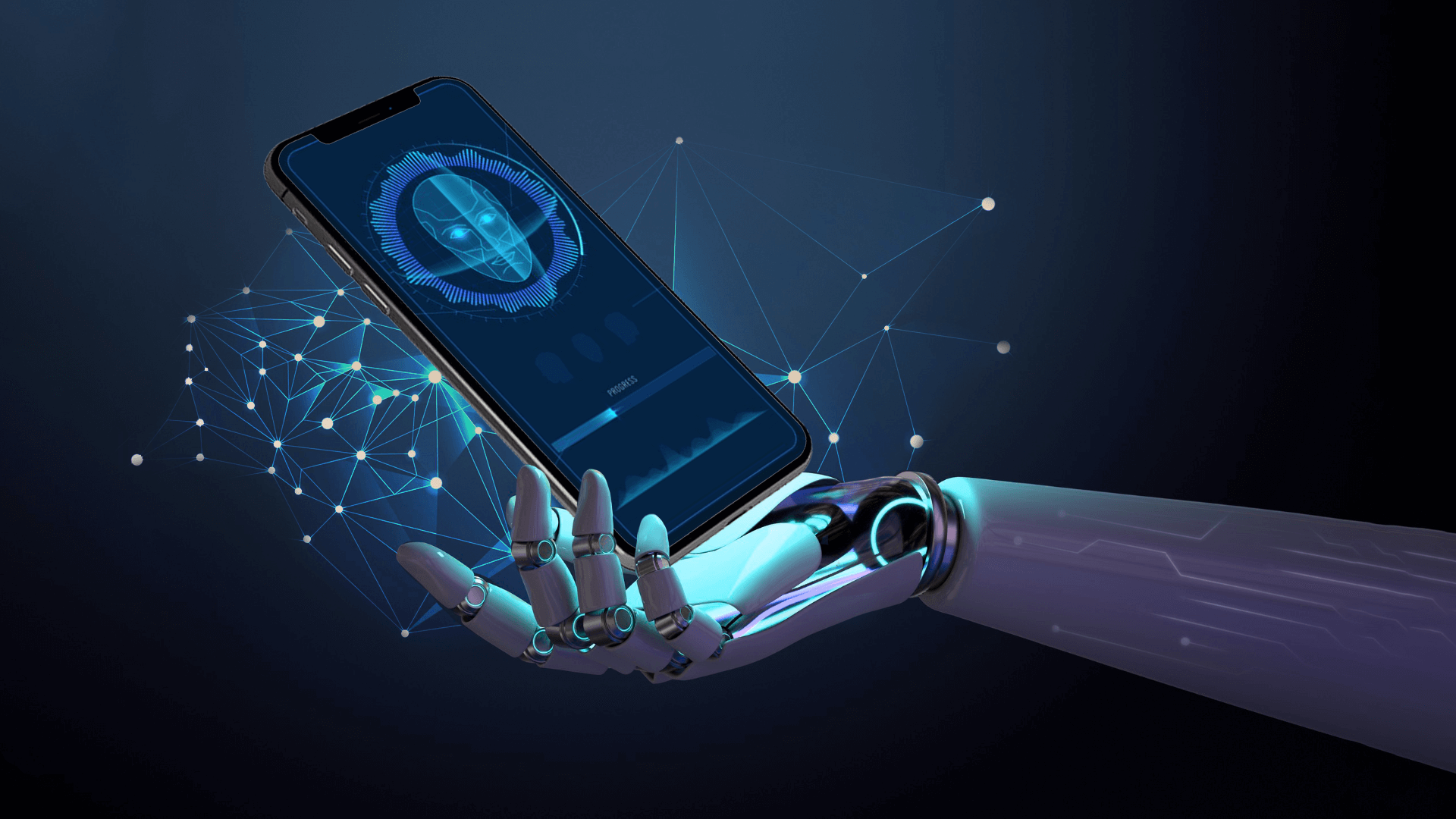
As we look to the future of app development in 2025 and beyond, the integration of Artificial Intelligence (AI) is becoming not just an advantage but a necessity for businesses striving to stay ahead in a competitive landscape. AI business apps are shaping the next generation of applications by introducing smart features that increase productivity, enhance user engagement, and optimize business processes. By embedding AI into your app development strategy, you can future-proof your business and ensure that your apps are ready for the challenges and opportunities of tomorrow.
In this article, we explore the business benefits of AI in app development, providing real-world examples of how AI is transforming industries and reshaping user experiences.
1. Enhanced Personalization and Customer Engagement
One of the most significant benefits of integrating AI into your app development strategy is the ability to deliver personalized experiences to users. AI business apps can analyze user behavior, preferences, and past interactions to tailor content and functionality, offering a more customized experience that resonates with individual users.
For example, in the e-commerce industry, AI is used to recommend products based on a user’s browsing history, past purchases, and search queries. Online retailers like Amazon and eBay utilize AI to show personalized recommendations, improving sales conversion rates. Similarly, streaming platforms such as Netflix and Spotify leverage AI algorithms to suggest movies, TV shows, and music based on user preferences, increasing user engagement and time spent within the app.
As businesses continue to adopt AI, the future of app development will include even more sophisticated levels of personalization. AI will be able to adapt to real-time user inputs and preferences, providing an increasingly seamless experience that builds customer loyalty and satisfaction.
2. Automating Routine Tasks and Workflow Optimization
AI has the ability to streamline workflows by automating repetitive tasks, allowing businesses to focus on higher-level operations. By embedding AI into business apps, companies can reduce manual intervention, decrease errors, and improve efficiency.
For instance, in customer service, AI-powered chatbots are able to handle common queries and support requests without human assistance, providing 24/7 support and freeing up human agents to focus on more complex issues. Chatbots can guide customers through processes such as checking account balances, booking appointments, or troubleshooting product issues, while continuously learning and improving their responses.
In enterprise resource planning (ERP) apps, AI can automate data entry, generate reports, and assist with decision-making by identifying patterns and trends in operational data. As AI continues to evolve, we can expect even greater automation of complex processes, leading to enhanced productivity and operational efficiency.
3. Predictive Analytics for Better Decision-Making
The future of app development is heavily reliant on the use of data, and AI is poised to take data analytics to the next level. AI-enabled apps can process vast amounts of data and use predictive analytics to provide valuable insights that guide business decisions.
In industries such as finance, AI-powered apps can analyze market trends and consumer behavior to predict stock movements or optimize investment strategies. Apps in the healthcare industry are using AI to analyze patient data and predict potential health risks, enabling doctors to make proactive decisions about treatment plans.
Retailers are also benefiting from predictive analytics in their AI business apps by forecasting demand for specific products, helping them optimize inventory management and reduce supply chain disruptions. By leveraging AI to predict customer behavior, businesses can make informed decisions that enhance efficiency and improve customer satisfaction.
4. Enhanced Security with AI
As cyber threats become more sophisticated, AI business apps are evolving to address the growing concern of data security. One of the key advantages of integrating AI into app development is its ability to detect and prevent potential security breaches.
AI can be used to monitor app activity in real time and identify unusual behavior, such as unauthorized login attempts, abnormal transaction patterns, or suspicious data access. By using machine learning algorithms, AI can continuously learn from previous incidents and improve its ability to detect potential security threats before they escalate.
For example, financial institutions use AI to analyze patterns of fraud and unauthorized transactions in real time, blocking suspicious activity and alerting customers to potential threats. Similarly, AI-powered biometric authentication (such as facial recognition or fingerprint scanning) can be used to enhance security for mobile apps, ensuring that only authorized users can access sensitive information.
By future-proofing your app with AI-powered security features, you can protect both your business and your users from the increasing risk of cyberattacks.
5. Real-World Examples of AI Integration
The power of AI in app development is already evident across various industries, with companies reaping significant rewards from its integration. Here are a few real-world examples of how AI is transforming app development and helping businesses future-proof their operations:
1. Uber: AI for Dynamic Pricing and Ride Matching
Uber, the global ride-sharing app, uses AI to match riders with drivers based on real-time data. By analyzing factors such as traffic conditions, user demand, and driver availability, Uber’s AI system can dynamically adjust pricing and ensure that users are matched with the most appropriate driver. This AI-powered system not only improves the efficiency of the app but also enhances user experience by providing faster ride matches and more accurate fare estimates.
2. Spotify: AI for Personalized Music Recommendations
Spotify, the music streaming platform, uses AI to create personalized playlists and music recommendations for its users. By analyzing listening habits, user interactions, and music preferences, Spotify’s AI system suggests songs, albums, and playlists that users are likely to enjoy, leading to increased user engagement. The AI also powers features like Discover Weekly and Daily Mix, further enhancing user experience and satisfaction.
3. Google Photos: AI for Image Recognition and Organization
Google Photos uses AI to automatically categorize and organize photos based on their content. AI-powered image recognition technology allows the app to identify objects, people, and locations in photos, making it easier for users to search for specific images. By leveraging AI, Google Photos is able to offer a more intelligent and efficient photo management experience, adding value to users and keeping them engaged with the platform.
6. Competitive Advantage and Business Growth
By integrating AI into your business app, you are not only improving the functionality and user experience of your app but also positioning your business as a leader in innovation. The future of app development is undeniably shaped by AI, and businesses that embrace these technologies can gain a significant competitive advantage.
AI-powered apps allow businesses to operate more efficiently, reduce costs, and enhance customer satisfaction—all of which contribute to long-term growth. By future-proofing your app with AI features such as personalization, predictive analytics, and automation, you ensure that your business can keep up with evolving market demands and user expectations.
Conclusion
The integration of AI into app development is not a passing trend but a crucial step toward future-proofing your business in a fast-evolving digital landscape. AI business apps provide businesses with the tools to offer personalized experiences, automate routine tasks, make data-driven decisions, enhance security, and optimize workflows. With real-world examples from companies like Uber, Spotify, and Google Photos, it is clear that AI is transforming the way apps are developed and used across various industries.
By incorporating AI into your app development strategy today, you set your business up for success in the years to come, ensuring that your apps remain relevant, competitive, and capable of meeting the demands of future users.
Tags:
#Mobile Application Development company
# Best Mobile Application Development Company





.jpg)



.jpg)

